Mastering the art of going electric
For Sasiranga de Silva, getting his hands on an ordinary vehicle and transforming it into an electric one is his forte.
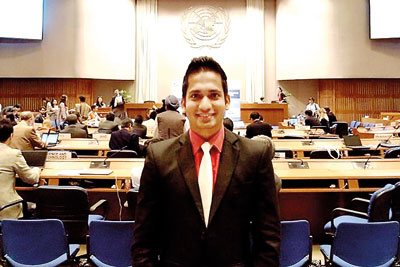
At the Asia Pacific Low Carbon Lifestyles Challenge in Thailand
“Since 2012, I’ve been converting vehicles into electric,” says 32- year old Sasiranga, a lecturer at the Mechanical Engineering Faculty at the University of Moratuwa. He recalls his first major project – the electrification of a Mini Minor car donated by the first Vice Chancellor of his university to the same.
The Mirror Magazine caught up with inventer Sasiranga to find out more about his passion to transform vehicles into electric ones and his achievements are no doubt an inspiration for those aspiring to enter the world of Mechanical Engineering.
Sasiranga’s latest innovation he tells is a conversion kit capable of converting tuk-tuks into electric ones. “The conversion kit was designed for the Asia Pacific Low Carbon Challenge in Thailand this year,” he explains. His innovation which was adjudged the best in the ‘E-mobility’ category at the contest amongst approximately 180 projects from various countries also resulted in him receiving a United Nations (UN) grant worth US$10,000.
Sasiranga says that the response so far has been positive with tuk drivers showing a keen interest to go electric.
The young innovator says his conversion kit, when utilized by tuk-tuks would reduce carbon dioxide emissions by 70 per cent. He also adds that the affordability and running costs are low, undoubtedly encouraging more tuk-tuk drivers to go electric.
“Now that the petrol prices are higher the benefits too are more,” says Sasiranga with a smile.
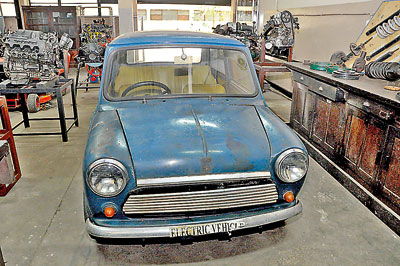
An electric mini - Sasiranga’s first major project
Sasiranga’s aim is to develop the kit to facilitate a tuk-tuk to travel a distance of 100 km on a fully charged battery.
More recently, Sasiranga represented Sri Lanka as a panelist at the Transforming Asia Forum which was held in Bangkok, Thailand. He was also selected amongst top five innovators to receive another grant of US$10,000 courtesy of the UN. The grant was awarded at a pitching session that was attended by the 12 winners of the ‘Low Carbon Lifestyles Challenge’ contest which was held earlier this year.
As a young innovator Sasiranga believes the government can do much to encourage innovation and ideas such as conversion kits. He explains that high tariffs are levied on certain components from overseas.
“There is a considerable amount of taxation involved. If the government really wants to promote electric vehicle manufacturing they have to provide tax concessions,” Sasiranga says, adding that importing certain components such as Lithium-ion batteries are a challenge.
“Sometimes we have to wait for months till the components arrive,” he says.
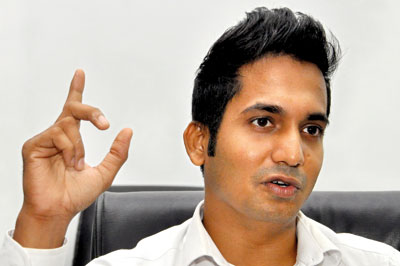
Sasiranga. Pic by Priyantha Wickramarachchi
Sasiranga hopes to introduce the kit to the market very soon following tests to ensure the long term durability of the product.
Having obtained a First Class Bachelor’s Degree in Automotive Engineering at the Royal Melbourne Institute of Technology, Sasiranga tells us he has always been a fan of contact sports in his spare time. Currently, engaged in boxing to maintain his fitness he toys with the possibility of entering the ring himself, but for now he tells us his focus is on his electric tuk project.
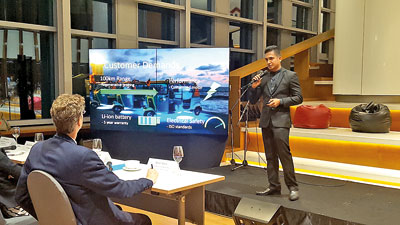
Sasiranga at a pitching session held in Thailand about his electric tuk project recently
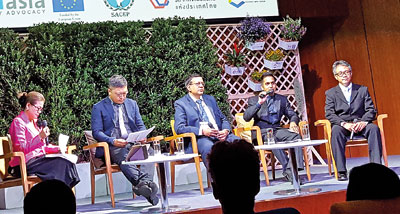
Sasiranga as a panelist at the Transforming Asia Forum 2018


